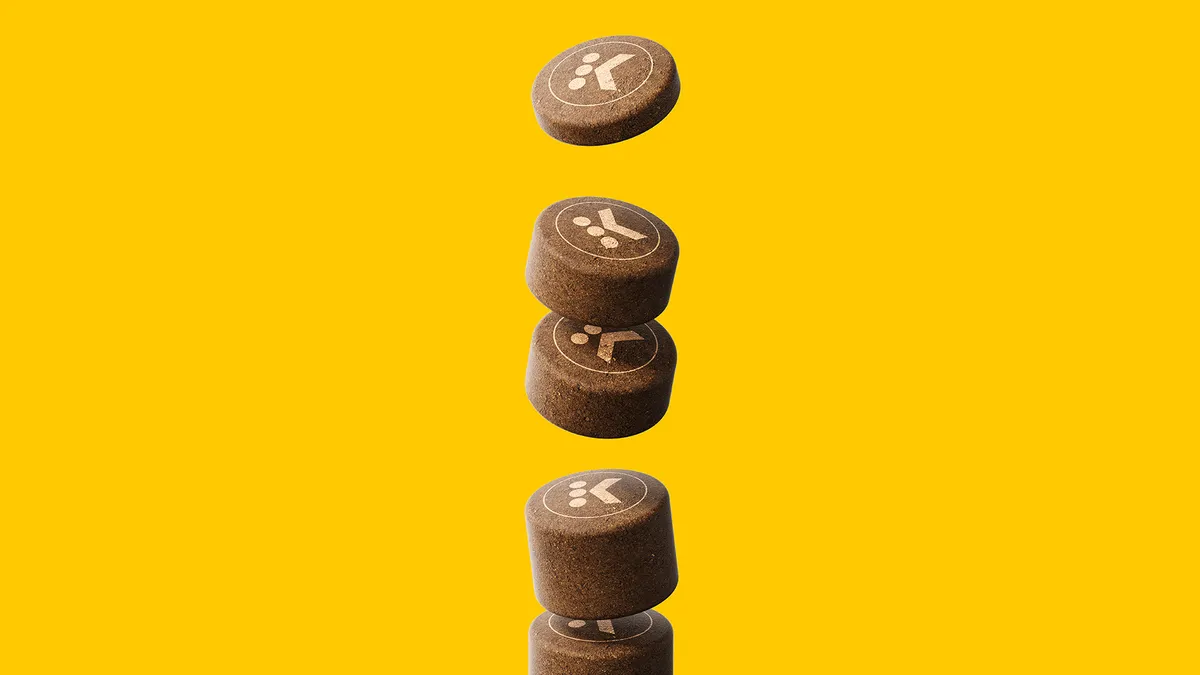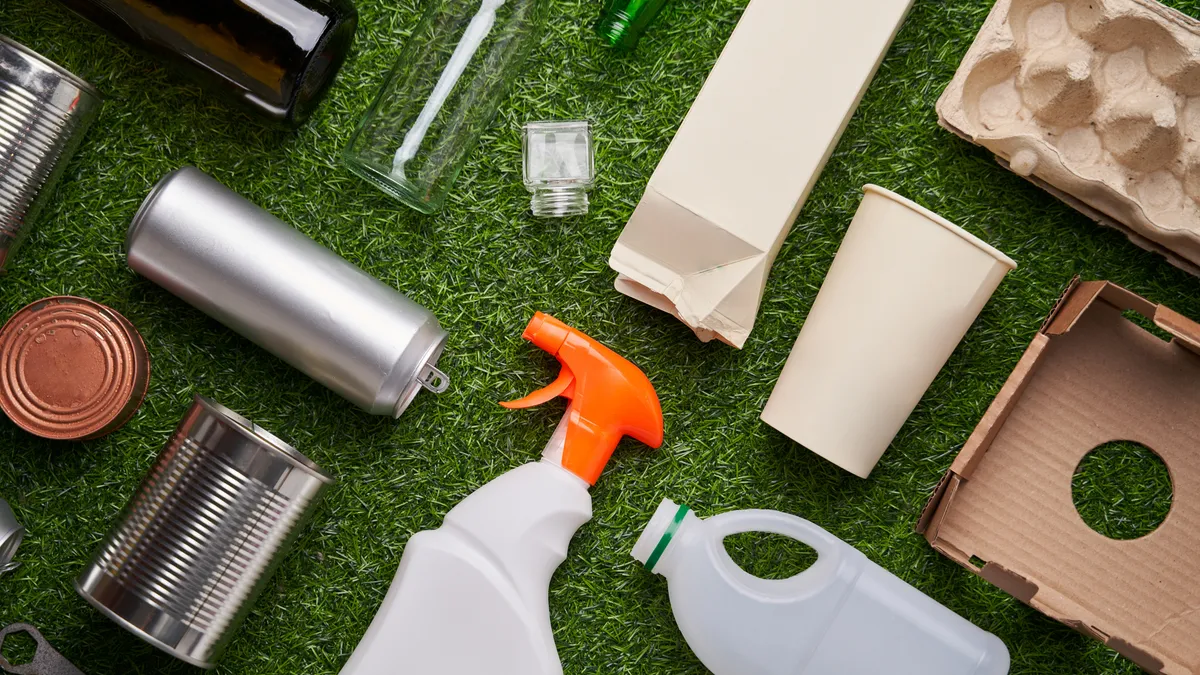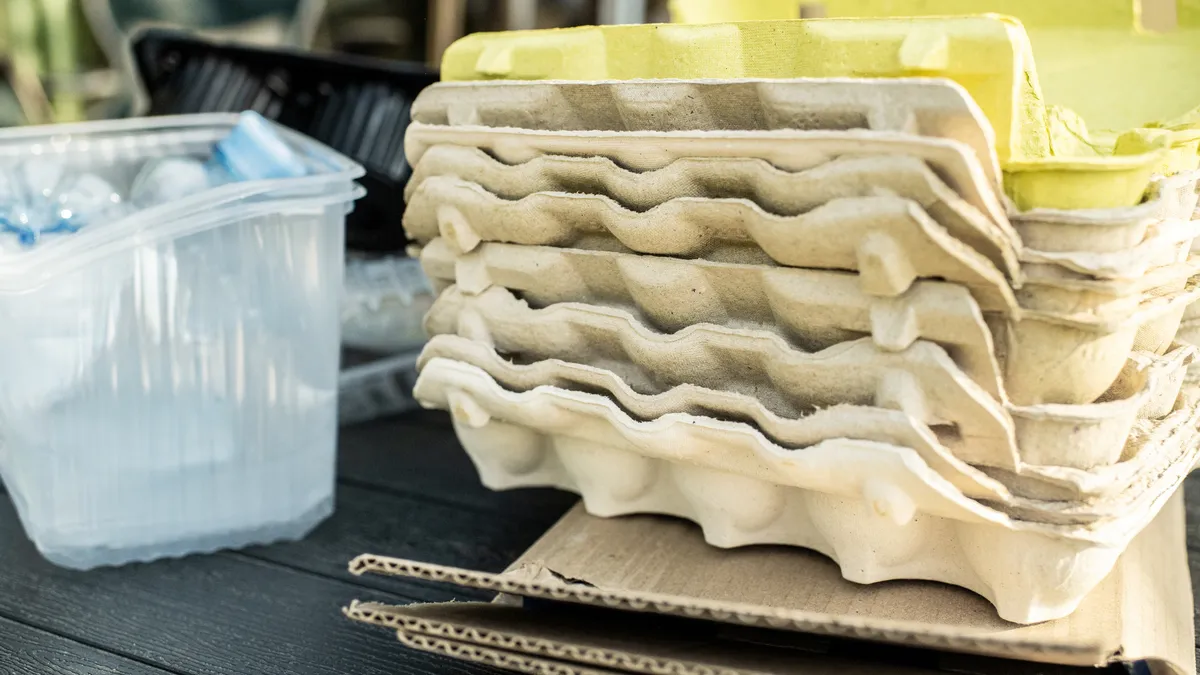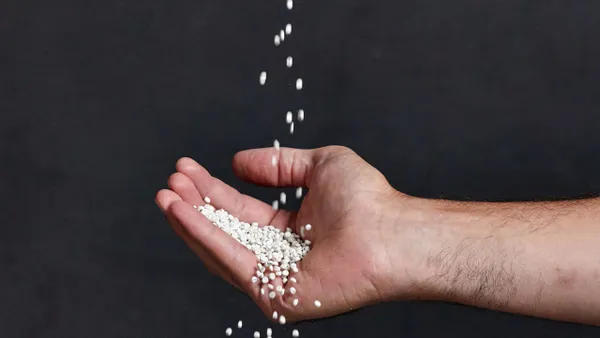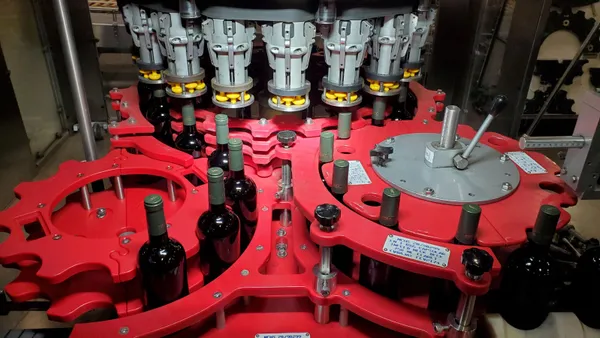While some companies and organizations have recently changed the scope or deadlines for their sustainable packaging targets, Keurig Dr Pepper said this week that it remains “committed to our glidepath to attain our 2025 sustainable packaging goals.”
The beverage giant last year reduced its use of virgin plastic packaging while increasing its use of postconsumer recycled content across its packaging portfolio, according to its 2023 corporate responsibility report, which came out Thursday. KDP attributed these gains to lightweighting and implementing 100% recycled plastic bottles for certain brands. It incorporated more than 39,000 metric tons of recycled PET across its packaging portfolio. The company recently earned a ‘B’ grade in As You Sow’s Plastic Promises Scorecard, which measures corporate ambition and action.
Packaging mix (by weight procured)
| Material | 2022 | 2023 |
| Paper/cardboard | 34% | 34% |
| PET bottles | 26% | 27% |
| Aluminum & steel | 14% | 13% |
| Non-refillable glass bottles | 10% | 8% |
| Refillable glass bottles | 0% | 3% |
| Polypropylene | 9% | 7% |
| Other | 5% | 4% |
| Flexible packaging | 3% | 4% |
2025 packaging sustainability goals and levels achieved
| Goal | 2020 | 2021 | 2022 | 2023 |
| Convert 100% of packaging to be recyclable or compostable | 94% | 95% | 94% | 95% |
| Use 30% postconsumer recycled content across all packaging | 22% | 24% | 24% | 27% |
| Use 25% postconsumer recycled content in plastic packaging | 2% | 11% | 18% | 17% |
| Achieve 20% virgin plastic reduction across plastic packaging | 1% | 6% | 11% | 15% |
KDP adjusted how it reports on the goal of making all packaging recyclable or compostable to include the addition of plastic packaging that is categorized as “recyclable with detrimental qualities” per the Association of Plastic Recyclers. This change appeared to increase the proportion of packaging considered recyclable; previously, the rates for 2020, 2021 and 2022 were 90%, 92% and 90%, respectively.
Reuse inched up for KDP in 2023: 2% of its plastic portfolio was reusable, versus 1% in 2022. KDP reported that refillable glass bottles represented 3% of its total packaging weight procured in 2023; this follows it not purchasing new refillable bottles in 2022. It said it is “working with peers in the beverage industry to establish a common methodology for the measurement of reuse and refill servings delivered.”
On the policy side, KDP says it sees more opportunity to “secure federal packaging collection policy or other national-level mechanisms that harmonize efforts to build a circular economy.” The company highlighted its active engagement in setting up extended producer responsibility for packaging programs in the U.S. and Canada.
The report highlighted KDP’s plans to begin testing K-Rounds, its previously announced plastic and aluminum-free coffee pods. As for its more traditional K-Cup pods, KDP said it reduced the amount of plastic in each by 18%. Removing polypropylene plastic discs in some eliminated more than 14 million pounds of virgin plastic from the packaging portfolio in 2023. KDP also said it maximized space within bulk packages by nesting the pods, resulting in more efficient transport packaging.



